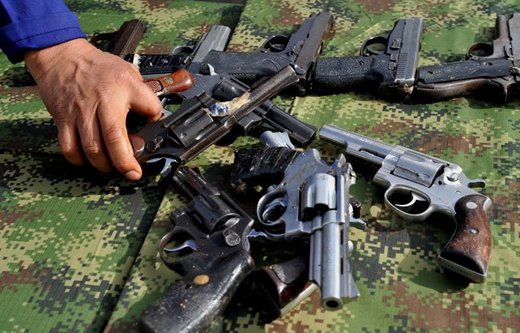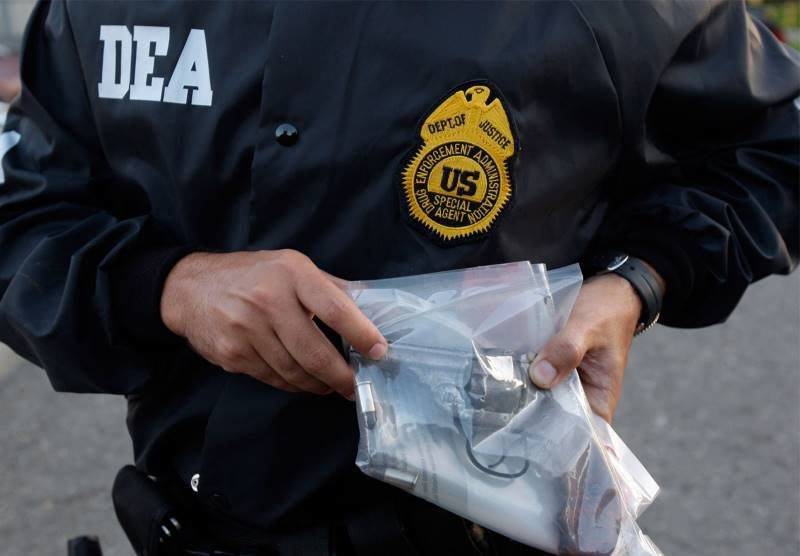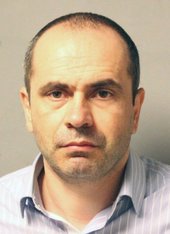Flaviu Georgescu, an American citizen from Romania, had been in the DEA's sights for years. A tall, heavyset man in his mid-40s with close-cropped hair, Flaviu worked as a private security contractor in Bucharest.
Over the past several months, Flaviu had been meeting with a Colombian man who claimed to be a member of the Revolutionary Armed Forces of Colombia. This man had sought Flaviu's help setting up a multimillion-dollar arms deal to help rearm FARC in Colombia. Arrested with Flaviu in the hotel that night was another man, Cristian Vintila, then a high-ranking government minister in Romania and another participant in the alleged arms deal. It seemed like a high-profile nab for the DEA.
Robert J. Scott was among the DEA agents who came to the hotel room that night in Montenegro. Flaviu immediately motioned with his head that he wanted to talk to the DEA agent.
"I'm with the CIA," he told Scott.
He was working undercover to provide more information, he told Scott that night. Scott wasn't interested. He'd heard excuses before. A 17-year veteran of the DEA, he knew handcuffed criminals would say just about anything to escape punishment.
Over the next several hours, Flaviu told agents in detail about the proposed deal — how a Southern California man introduced him to the Colombians seeking weapons. He told the agents how he connected with Vintila, as well as with a flamboyant former member of the Italian parliament named Massimo Romagnoli, to piece together the supply chain for the arms deal.

Flaviu didn't ask for a cooperating agreement or any other guarantee for his help, insisting to DEA agents that he was working for the CIA and had been gathering information all along. According to him, this was all part of the job.
Flaviu spent several weeks in detention at a local prison. In February 2015, the three men — Flaviu, Cristian, and Massimo — were extradited to the United States to face trial on charges of material support for terrorists. In a statement announcing their extradition, U.S. Attorney Preet Bharara described them as "ready and willing merchants of death."
The reality, it turned out, was far more complicated. Flaviu contends he had been running his own sting operation — using skills he developed a decade earlier while working undercover for the FBI. He never considered that another man involved in the transaction would be running a sting of his own. If this is true, Flaviu and his informant adversary were playing opposites sides of a mysterious spy game.
Flaviu says he was not trying to complete an arms deal, but was quietly collecting evidence about the arms network for the CIA.
And he had the phone calls he said would prove it.
Born in Romania, Flaviu Georgescu first came to the United States in 1996, settling in Las Vegas after finding work at a gym owned by his cousin that catered to the Romanian community in Nevada.
Flaviu eventually started working as an all-around fixer for wealthy Romanians and other Eastern Europeans visiting Las Vegas. Whatever they wanted, Flaviu could procure: Bugatti sports cars, Gulfstream jets, bodyguards, drivers, exclusive shopping experiences.
In 2000, while serving a wealthy client, Flaviu needed to ship a car to Switzerland. A friend told him of a Romanian in Los Angeles with the same last name as his. "He has really great prices," the friend told Flaviu. That Romanian was Andi Georgescu, an international wheeler-dealer who runs a shipping company based in Southern California. (Despite their shared last name, Flaviu and Andi are not related.)
Through his Eastern European clients, Flaviu began to learn about criminal activity in Las Vegas, including how organized crime outfits were moving money in and out of the United States. Alarmed, he went to the local office of the FBI. "I grow up [under] Communism, and at that time there was no crimes," Flaviu recalled later in trial testimony. Flaviu said he believed in the type of iron justice he saw as a boy living under communism. He told the FBI he had information about Eastern European organized crime, giving the bureau names of people to investigate. He said he wanted to help, and according to Flaviu's telling of the story, an FBI agent gave him his business card. "Call back when you have more information," the agent told him.
One week later, Flaviu called. "I put everything together, how they work, how they organize, how they move the money," Flaviu recounted. He continued to provide intelligence to the FBI, never asking for money or favors. At one point, the FBI insisted on paying Flaviu and gave him a $500 check. "I was so proud about that check, I put it in frame and I hold it," he said. "I never cash that check because it was the only thing which, for myself, it was like I did something, and I'm on this side."
He was, in his view, one of the good guys.
In 2003, Flaviu's secret work was revealed when the FBI arrested a man and seized money; Flaviu was the only witness to his crime. "He was not stupid. I was the only one over there," Flaviu said.
According to Flaviu, a hit was put out on him. So he disappeared. By 2006, Flaviu, now a U.S. citizen, had moved back to Romania, where he scratched out a living selling GPS ankle monitoring devices for use by Romanian law enforcement.
In 2011, out of nowhere, Flaviu received a call from a friend with a familiar name: Andi Georgescu.
Andi said he knew a Colombian looking to purchase weapons. "It's a lot of money we can make," Flaviu remembered Andi telling him. Flaviu and Andi spoke several more times. Flaviu decided the situation represented a "direct threat" to the United States, and he recalled the U.S. government's counterterrorism motto: If you see something, say something. "I was thinking I make a, you know, a difference," Flaviu said.
So he called the CIA.
"Someone contacted me from Miami," Flaviu told the CIA employee who answered the tip line, according to a recording of the call. "They have some clients from Colombia, and they are interested to buy some equipment — anything, like, from grenades, ammunition, everything."
In two phone calls, each with a different CIA employee, Flaviu went into detail about the weapons deal. He said Andi had introduced him to the Colombians, who wanted grenades and ammunition. He suspected the men might be criminals and that they should investigate.
"Let me work for you," Flaviu told the CIA, adding: "I'll provide you all the information, because in my opinion, you don't have to stop anything right now."
"I appreciate you bringing this information to our attention, and I'll certainly tread carefully, as we say, as far as how we discuss this issue here at the agency," the CIA agent, whose name is redacted, said to Flaviu.
What neither Flaviu nor possibly the CIA knew was that the Colombians were undercover informants working for another U.S. government agency.
Read the rest of the article here.





Reader Comments
to our Newsletter